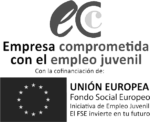Future of progress in training and education
There is a broad international consensus on the crucial role played by the education and training as fundamental instruments to prepare a future of progress for the countries' economies, for their businesses and for each of their citizens.
One of the most structuring elements of the progressive changes experienced in the economic, cultural and social sphere, particularly in the last three decades, has been globalisation as a set of processes through which the events, decisions and activities that take place in a certain place on the planet have a significant impact on other places, other individuals and other collectivities.
Market dynamics, with the increasing liberalisation of flows of products, services, capital and people, together with the development of Information and Communication Technologies (ICTs) have been the main drivers that have given enormous energy to this process on a planetary scale.
The concept of the "fourth industrial revolution" has recently emerged within the framework of the World Economic Forum to refer to a rapid change that is already emerging in the global economy based on technology supported by physical, biological and digital systems.
In the EU itself, the forecasts of the European Centre for the Development of Vocational Training predict that 13.7 million jobs will be created by 2025 for those with only lower secondary education, compared with 42.9 million for those with secondary education and almost 40.4 million for those with higher education.
The EU has more than 500 million citizens, 3 different alphabets and 24 different official languages. The Commission has therefore given two new targets for 2020. One is related to academic performance, stating that at least 501 PT3T of 15 year olds should reach an independent user level; and the second concerns the number of students, of which at least 751 PT3T should study a second foreign language at lower secondary level.

Another aspect of the training and educationThe European Union has oriented its policies and recommendations to member states in order to face the challenges of the new context with a better chance of success.
This has materialised in the articulation of two ambitious frameworks for action to be implemented successively in each of the first two decades of the new century. These frameworks are known as the Lisbon Strategy and the European 2020 Strategy, respectively.





